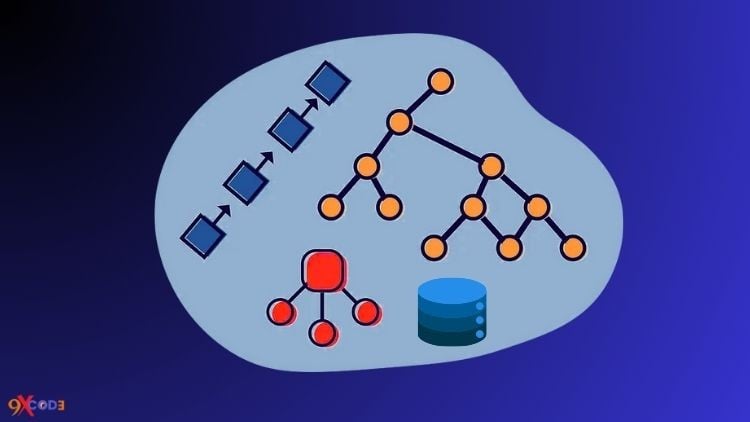
Arrays, Linked Lists, Stacks, Queues, Trees, Graphs, Sorting, Searching, Dynamic Programming, Recursion, Hashing, DSA
⭐ 4.50/5 rating
👥 7,359 students
🔄 April 2025 update
Add-On Information:
Note➛ Make sure your 𝐔𝐝𝐞𝐦𝐲 cart has only this course you're going to enroll it now, Remove all other courses from the 𝐔𝐝𝐞𝐦𝐲 cart before Enrolling!
-
Course Overview
- Rated an exceptional 4.50/5 by 7,359 students, this course provides a rigorous, interview-focused preparation for Data Structures & Algorithms (DSA).
- Designed to transform your problem-solving skills, it covers foundational and advanced DSA concepts crucial for technical interviews at top tech companies.
- Benefit from an April 2025 update, ensuring all content is fresh, relevant, and aligned with current industry interview expectations and best practices.
- Gain deep theoretical understanding coupled with extensive practical application, translating complex ideas into actionable coding solutions.
- Navigate the intricate landscape of algorithmic thinking with confidence, building a robust toolkit for tackling diverse coding challenges.
-
Requirements / Prerequisites
- A basic grasp of any modern programming language (e.g., Python, Java, C++, JavaScript) including fundamental syntax and control flow.
- Familiarity with writing and executing simple programs, demonstrating a logical approach to basic coding problems.
- Commitment to consistent practice and active engagement with problem-solving exercises to solidify learned concepts.
- A functional computer with internet access and a preferred code editor or IDE for hands-on coding.
-
Skills Covered / Tools Used
- Arrays & Strings: Master efficient manipulation of one and two-dimensional arrays, string operations, prefix sums, and sliding window techniques.
- Linked Lists: Implement and perform operations on singly, doubly, and circular linked lists, including reversal, merging, and cycle detection.
- Stacks & Queues: Understand and apply LIFO/FIFO principles, implementing these ADTs for problems like expression evaluation and graph traversals.
- Trees: Explore Binary Trees, Binary Search Trees (BSTs), various traversals (in-order, pre-order, post-order), and basic tree balancing concepts.
- Graphs: Delve into graph representations (adjacency lists/matrices), fundamental algorithms like BFS, DFS, and foundational shortest path concepts.
- Sorting Algorithms: Analyze and implement core sorting techniques such as Merge Sort, Quick Sort, and Heap Sort, understanding their complexities.
- Searching Algorithms: Proficiently apply Binary Search and its variations, alongside other efficient searching methods across structured data.
- Dynamic Programming: Develop a systematic approach to solving optimization problems using memoization and tabulation, identifying optimal substructures.
- Recursion & Backtracking: Grasp recursive thinking, base cases, and leverage backtracking for complex combinatorial problems like permutations and N-Queens.
- Hashing: Comprehend hash functions, collision resolution strategies (chaining, open addressing), and practical applications of hash maps/sets for O(1) average time operations.
- Algorithm Analysis: Expertly analyze time and space complexity using Big O notation, crucial for optimizing solutions for performance.
- Problem-Solving Paradigms: Apply various algorithmic strategies including greedy approaches, divide and conquer, and two-pointer techniques.
- Development Environment: Utilize standard code editors or IDEs for coding practice, complemented by online judge platforms for problem submission and evaluation.
-
Benefits / Outcomes
- Elevated Interview Performance: Approach technical interviews with significantly increased confidence, capable of clear articulation and optimal solution delivery.
- Superior Problem-Solving Acumen: Sharpen your analytical skills, enabling you to dissect complex problems and architect efficient, robust solutions.
- Optimized Code Production: Learn to write highly efficient, scalable, and production-ready code, adhering to industry best practices.
- Comprehensive DSA Mastery: Achieve a profound and practical understanding of core data structures and algorithms, forming an unbreakable foundation.
- Accelerated Career Growth: Significantly enhance your prospects for securing desirable roles at leading technology firms and innovation-driven companies.
- Strategic Algorithmic Thinking: Develop an invaluable algorithmic mindset applicable not just to interviews but to broader software design challenges.
- Hands-on Application: Transition seamlessly from theoretical knowledge to practical application through numerous, carefully curated practice problems.
-
PROS
- Holistic Curriculum: Offers exhaustive coverage of all essential DSA topics pertinent to modern technical interviews.
- Highly Rated & Trusted: Backed by an excellent student rating and a large, satisfied learning community.
- Current & Relevant: Features up-to-date content (April 2025 update) ensuring alignment with contemporary interview trends.
- Interview-Centric Focus: Specifically designed to equip learners with strategies and solutions for real-world interview challenges.
- Structured Pedagogy: Provides a clear, logical, and easy-to-follow learning path for even the most complex subjects.
-
CONS
- Demanding Time Commitment: Requires substantial personal dedication and consistent effort to master the concepts and achieve proficiency, which may be challenging.
Learning Tracks: English,Development,Software Engineering
Found It Free? Share It Fast!